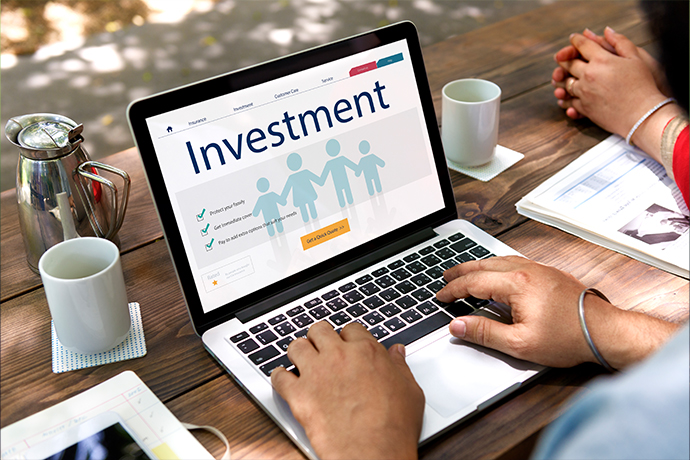 SPEAKERS
SPEAKERS
Discover smart investment strategies for businesses during economic slowdowns. Learn how to navigate uncertainty and make decisions that ensure long-term stability and growth.

The modern business landscape often presents unforeseen challenges, one of which is the persistent spectre of economic slowdowns. Navigating these periods requires both insight and adaptability. Although daunting, these periods offer unique opportunities for those with an eye for strategic investment. An economic slowdown does not affect the risk of holding wise investments; rather, it demands a smarter approach. To thrive, companies need to pinpoint growth avenues and innovation potential in their sectors.
An economic slowdown refers to a period when the economy grows at a slower rate than expected. While this can unnervingly affect many market segments, it also comes with opportunities for those who adapt strategically. For businesses that prioritise resilience, understanding and anticipating the impact of slow down economic growth can be crucial in their investment journey. Strategic planning is pivotal to transforming challenges into gateways for growth.
Businesses must promptly revise their strategies to stay effective in an environment characterised by slow down economic growth. The ability to adapt is at the core of thriving amid market shifts. During such periods, it is beneficial to focus on core strengths rather than venturing into unfamiliar territories. This approach ensures that resources are wisely utilised and prepared for enduring potential adversities.
Stakeholders, investors, and teams need to align with the overall vision to drive successful outcomes. The alignment fosters a proactive culture that perceives downturns as periods of recalibration and growth potential. Recognising opportunities during an economic slowdown can lead to exemplary transformations and benchmark success. Inspired leadership and a motivated workforce are vital catalysts for navigating this journey.

Investing during a slowdown requires vision and courage. The best investment in a down economy often involves sectors like technology, essential services, and innovations that thrive in adversity. By carefully selecting areas that have shown resilience and potential, businesses can cushion themselves against harsh economic conditions. Diversifying portfolios can safeguard against potential financial stress by spreading risk across various investment avenues.
For example, real estate in undervalued regions holds the potential for long-term gain. It often provides a reliable income stream even when other investments may not perform as expected. Prices in these areas may be temporarily suppressed, offering astute investors an opportunity to secure valuable assets at lower costs. Stocks in resilient sectors, particularly those that meet basic needs like healthcare or food, tend to maintain stability even in challenging times.
Renewable energy projects present another promising avenue. As the world shifts to more sustainable practices, the demand for clean energy continues to rise. Investing in this sector not only prepares businesses for future norms but also aligns with global trends towards sustainability. Such investments can yield attractive returns and promote a positive impact on the environment, thus enhancing a company’s reputation.
During periods of economic slowdowns, ensuring financial stability becomes an essential focus for businesses. They should promptly and thoroughly assess their cash flows to identify any potential constraints. Maintaining liquidity is crucial as it equips businesses with the flexibility needed to manoeuvre through unpredictable market conditions. Prudent cash management facilitates nimble decision-making, allowing firms to capitalize on potential investments that arise at fortuitous times.
Furthermore, it is beneficial for businesses to engage financial advisors who can offer expert insights and guidance. Navigating through today's uncertain economic waters can be complex, and these experts provide valuable support. Their financial acumen and analysis of market trends can prevent businesses from making hasty decisions. The benefit of multiple perspectives enriches the decision-making process, helping companies to fortify and enhance their economic strategies.
Firms should also consider diversifying their revenue streams to secure themselves against downturn-related vulnerabilities. This involves exploring alternative products or services that remain in demand despite the slow pace of economic growth. Another key strategy is to foster strong relationships with stakeholders, including suppliers and customers. A well-cemented network can act as a buffer during challenging times, providing support and resources that may not be available through traditional channels.
Taking these proactive steps allows businesses to remain resilient and agile. The focus should be on maintaining strategic investments and making cautious yet bold decisions that will ultimately turn challenges into new growth opportunities. As businesses embrace these strategies, they will find themselves better positioned to withstand and even benefit from a slowdown in economic growth.

Embracing innovation and adaptability in business is non-negotiable during economic downturns. Successful firms don't just react; they proactively evolve by integrating new technologies and refining processes. By doing so, they not only adapt but thrive amidst challenges. When economic slowdowns impact traditional business models, thinking creatively provides a competitive edge.
Many industries witness transformative trends during slow down economic growth phases, prompting businesses to reassess and renovate. Explore automation technologies that streamline operations and reduce costs, particularly in manufacturing and logistics. Additionally, embrace data analytics to drive strategic decisions, ensuring every investment is calculated and backed by factual insights.

As often underlined by the entrepreneurship speakers and economy speakers, resilience often lies in understanding the intricacies of market dynamics, which is why investment during economic slowdowns should not be about fleeing from risks but grasping them. Awareness of opportunity cost and the sectors that flourish during adversity is vital.
Finally, always maintain a forward-thinking approach. A visionary lens allows businesses to foresee upcoming trends and prepare strategies that withstand future shocks. Establishing a balance between immediate tactical moves and long-term strategic objectives is essential, as it enables firms to emerge from economic downturns stronger and more successful.
As organizations steer through times of uncertainty, leveraging the power of innovation and adaptation will not only cushion potential setbacks but also pave the path to prosperity. With determination, informed decisions, and a focus on sustainable practices, businesses can achieve remarkable feats regardless of economic climate. Embrace this ethos and transform challenges into opportunities for growth and expansion.